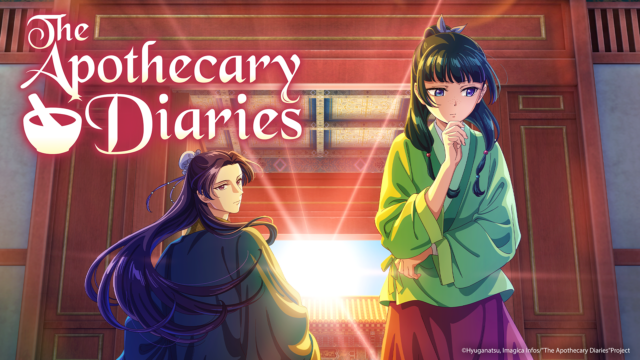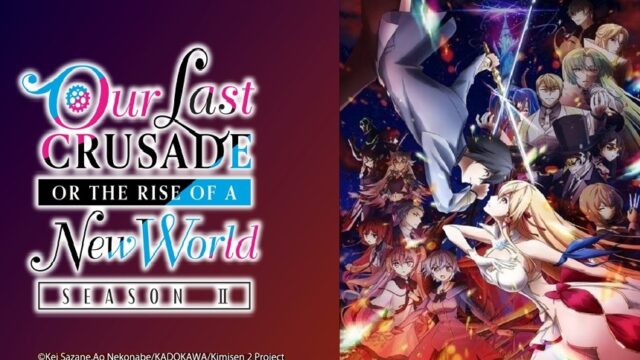English Dub Review: Lonely Castle in the Mirror
Overview:
Kokoro Anzai is a depressed young girl who’s terrified over the prospect of returning to school and having to confront her bully. Kokoro suddenly finds the perfect answer to her problems when she gains access to a fantasy world, along with six other similarly disadvantaged outcasts, that may give all of them a solution to their problems. They just have to find it and survive the odd conditions that accompany this once-in-a-lifetime quest.
Our Take:
Keiichi Hara is a fascinating anime auteur who first cut his teeth on Doraemon, Esper Mami, and Crayon Shin-chan, before helming more melodramatic and melancholy feature films like Miss Hokusai and Colorful. Lonely Castle in the Mirror feels like a mature evolution of Hara’s works as he tells an emotional story that will cut audiences to their core, while it also evokes the playful fantasy of Studio Ghibli films or the works of Mamoru Hosoda. he Lonely Castle in the Mirror is a worthy addition to Hara’s oeuvre that points towards an exciting future for the storyteller that will resonate with both fantasy fans and those who have ever felt misunderstood and alone.
There is no shortage of isekai anime movies where lonely introverts come into their own after being whisked away to a fantastical world. Lonely Castle in the Mirror certainly pulls from this playbook and begins in fairly familiar territory, but it still lands the emotional beats even if none of this is exactly new. Anyone who’s familiar with the latest trend of melodramatic magical girl content are likely to identify shades of Wonder Egg Priority and Lycoris Recoil, but unfortunately Lonely Castle in the Mirror can’t compare to either.
Like Hara’s past works, Lonely Castle in the Mirror expertly taps into the toxic, vulnerable nature of loneliness and how it can infect the brightest of people and turn them into sad, broken husks, and alternatively, the healing power of community, friendship, and understanding. Lonely Castle in the Mirror begins in this fragile place and uses powerful escapism to get to the core of Kokoro’s problems and determine what truly, deeply ails her. Kokoro’s anxiety is palpable throughout the start of the story. Her defeated delivery speaks volumes for her mental state, but even her body language properly establishes how she feels low status. Kokoro lingers in the corner of frames, taking up as little space as possible, as if she doesn’t want to exist. All of this allows Kokor to arrive surprisingly fully-formed as a character and it’s remarkable to watch how much her actions, expressions, and framing evolves once she begins to find her voice in this unusual fantasy realm.
Kokoro is one of seven special kids who have a year to find a key that will lead them to a special room where their greatest wishes will be granted. It’s a worthy trajectory for Kokoro and the rest of these lost Little Red Riding Hoods, but some of the characters slightly get shortchanged. Every kid has their charms, but arguably five kids could have been slightly more effective than seven. Aki Inoue and Rion Mizumori leave the greatest impact outside of Kokoro and each of their voice actors–Giselle Fernandez, Huxley Westemeier, and Micah Lin–really pour themselves into these raw characters, especially Lin and Fernandez.
It’s rewarding to watch this group of sad, neglected outcasts learn to own their differences and accept that they’re outliers, but that’s also what makes them special. These children just want someone to listen to them and make them feel valued. To them, a kind ear is as impossible an idea as a castle that lies on the other side of a mirror. Lonely Castle in the Mirror highlights the truly vicious nature of bullying and depression to great effect, like Hara’s other films, but still hits very hard. Slowly these kids begin to learn that they have surprising things in common and that their roles in this unusual quest are perhaps anything but random. The castle itself also takes on a much more symbolic role as a waystation that’s designed to help troubled kids get through the hurdles of adolescence.
The film also benefits from how it gradually chronicles a year of these characters’ lives, which allows actual growth to be seen as most of these characters leave the film more mature and more at peace with the world. It allows for a believable level of maturity that would feel forced or contrived in a movie that only condenses this journey to only a month or a week. A fascinating push and pull between the real world and fantasy plays out as Kokoro weighs in where she belongs and feels most comfortable. The film accurately depicts the awkward nature of making friends and finding earnest companionship in unexpected places.
Lonely Castle in the Mirror tells a familiar story that mostly works, but is not without its faults. There’s a lengthy sequence where Kokoro and the rest of the spirited away Little Red Riding Hoods inundate Wolf Queen with reasonable questions that the audience also likely have, only for all of them to get systematically shut down and deemed irrelevant. It’s a curious scene that seems designed to drag down exposition and embrace a freer narrative that doesn’t need to get lost in the details, but the scene also succinctly highlights everything that’s lacking in the movie. The lack of answers that are provided feel like the storytellers genuinely don’t have responses to these valid queries rather than a clever cryptic nature that enhances this fantasy mystery.
There’s a lot of tension that’s created over the appealing prize that Queen Wolf hangs over Kokoro and company’s heads. For a minute it maybe seems like the direction that the film is heading down is that Kokoro and friends become so self-assured that the tantalizing wish that hides behind a locked door is no longer appealing to any of them and they simply walk away from it because they don’t need it any more. Lonely Castle in the Mirror doesn’t take that bait and while its conclusion is still emotional and fulfilling, it still feels like the better outcome for these characters is one where the answers come from within instead of a fantastical finish.
At nearly two hours, Lonely Castle in the Mirror begins to wear thin and nearly spin its wheels. Right when it feels like the film is about to repeat itself and overstay its welcome there’s a rewarding third act twist that casts the rest of the film in unpredictable doubt that adds a lot of suspense to Kokoro’s story as she synthesizes everything that she’s learned over the course of the film from her six other friends. The emotions still ring true and Kokoro’s journey should keep audiences invested in what happens to her by the movie’s end. The final chunk of the movie rids itself of subtext and visits some dark, uncomfortable places in order to underscore its themes.
Visually, Lonely Castle in the Mirror never gets too flashy with its presentation and it’s confident enough to let the movie’s animation speak for itself. Despite the film’s restrained nature, there’s one particular stylistic effect that’s used to convey traumatic repression that’s incredibly effective and one of the movie’s most creative acts. The film would benefit to have more moments like this, but on its own it stands out even more as this disturbing flourish.
Lonely Castle in the Mirror properly mixes grounded melodrama with supernatural storytelling in a distinctly anime package. Those who are looking for something that reaches the fantastical heights of Suzume or Belle or the crushing sorrow of A Silent Voice or I Want to Eat Your Pancreas are bound to be disappointed, but there’s still a special, inspirational story being told here that sticks the landing. It’s unlikely that Lonely Castle in the Mirror will be a breakout hit, but it should still resonate with those who don’t typically give anime movies a chance, especially children who are Kokoro’s age.


























"There are also other characters that come and go (also owned by the Warner Bros. Discovery conglomerate media company)."
Huh. Is that just referring to other characters from the show itself, or is this implying that the new season is going to have cameos from other WBD IPs